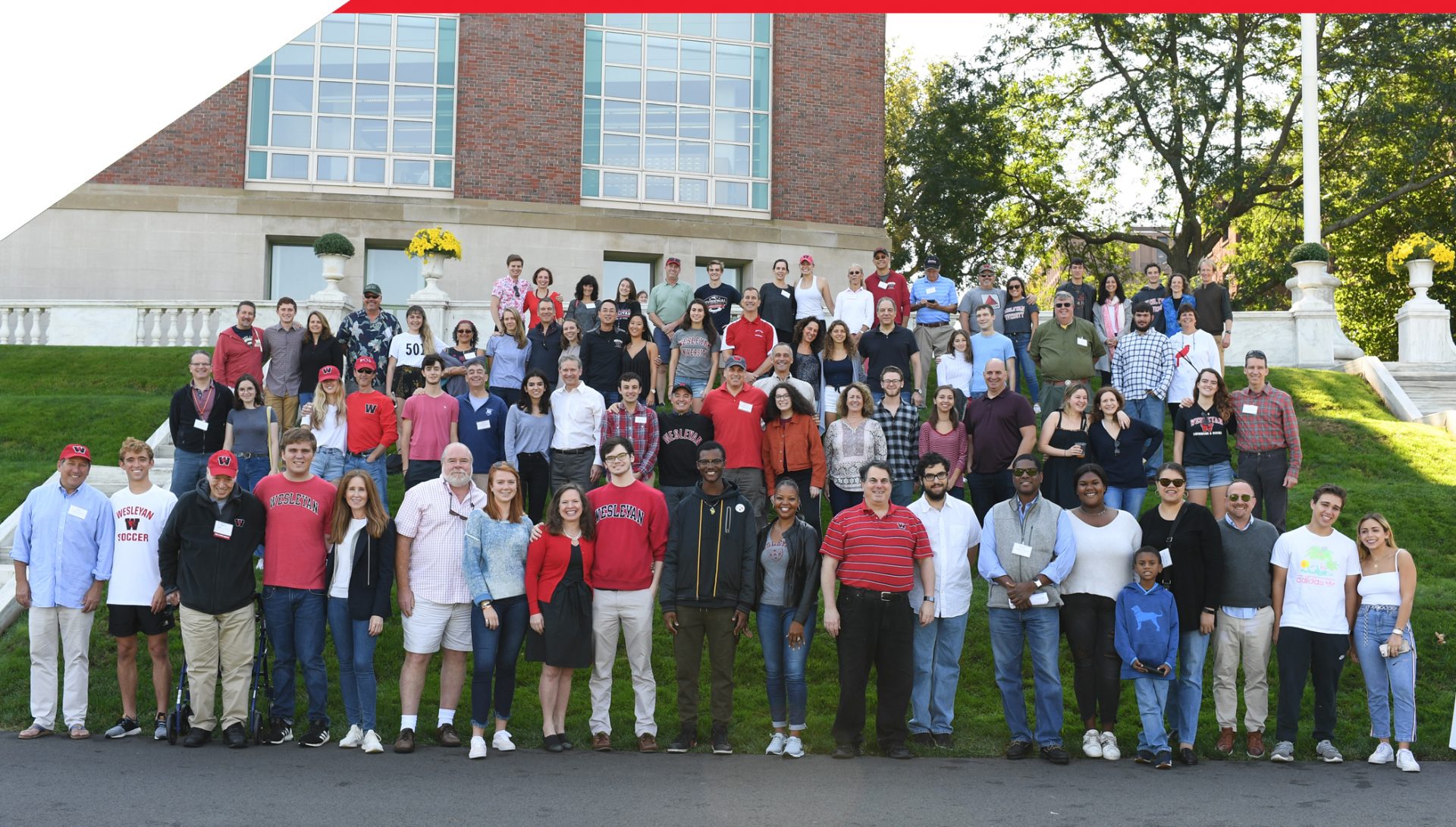LETTER HOME: VISITING SWAZILAND WITH STEVE KALLAUGHER ’73 AND YOUNG HEROES FOUNDATION
By Steve Machuga, director of administrative systems, Wesleyan Information Technology Services
LED BY STEVE KALLAUGHER ’73, we’ve just arrived by van at the Mlindazwe Orphan Care Point—a two-room, cinder-block building with a tin roof and a surrounding grass-and-dirt play yard. Steve reaches out and hugs Make (Mother) Maziya. She has the presence and dignity of a bone-weary grandmother—both humble and fully in charge. They smile at each other and let each other go with an air of slight embarrassment. Then they arrange themselves so we can take their picture.
In the kitchen—the smaller of the two rooms—we help Make Maziya make a chicken, potato, and rice stew in huge iron pots over a wood fire. We pass out the stew in battered metal plates to the children in the classroom. After lunch, we go outside to the grass-and-dirt play yard. The children laugh and scream, chase after the bubbles we’ve brought, engage us in clapping games, and practice their English.
This is our first day in Swaziland, a tiny country tucked between South Africa and Mozambique. It has the highest HIV infection rate in the world. Income and life expectancy are low. My wife, Sari Rosenblatt, and I are here to support Steve, our longtime friend, and his work with Young Heroes, a foundation he created for Swazi AIDS orphans. Those with us include Don Graham ’71, who serves on the board of directors.
Ten years ago, the Mlindazwe Orphan Care Point was the birthplace of Young Heroes, an outgrowth of Steve’s AIDS work in the Peace Corps, which he joined at 53 after leaving the Wall Street Journal. As Steve tells the story:
“My first day in the village, I’m walking down a dirt road and a guy standing in a field yells to me, ‘Hey, Peace Corps! We’ve been waiting for you.’
“That was Paolos. I joined him, Make Maziya, and Make Bennett in creating the care point. When I got the idea for Young Heroes, I asked them to bring me to orphan homesteads so I could start compiling a list of families in need. For two days in 90-plus degree heat, the two women and I walked miles around the community and signed up more than 50 families. And that’s how we got started.”
For 12 days, we traveled across Swaziland avoiding wandering cattle, goats, and chickens. We visited Young Heroes’ programs: an HIV+ teen club, a toddler playroom at the Good Shepherd Hospital, women’s financial empowerment groups, programs for young girls, a vocational school, and many rural orphan homesteads.
We often met with grandparents living with grandchildren in rock and mud rondavels surrounded by gardens and avocado trees, patrolled by chickens and bone-thin dogs. We also visited two brothers, ages 12 and 15, living alone, unable to attend school, often going hungry. It was clear what a difference a grandparent could make in a kid’s life. Young Heroes staff, who had recently found the boys, were making plans for both food and school support.
Our trip concluded at the Bush Fire International Music Festival in the lush farmlands of the Malkerns Valley. Partners with Young Heroes for 10 years, Bush Fire donates a portion of each ticket to them. With an attendance of 25,000, it brings together colorful musicians, artists, social, and business entrepreneurs working to improve and celebrate life in Swaziland. Steve went onstage to thank Bush Fire and to talk about Young Heroes.
We went to Swaziland to see what Steve, our friend of 40 years, has been doing for the last decade. We left touched by what he has accomplished and the lives he has helped change.
With additional assistance from USAID and the President’s Emergency Plan for AIDS Relief, Young Heroes programs (youngheroes.org.sz/) reach nearly 15,000 orphans and vulnerable children.


